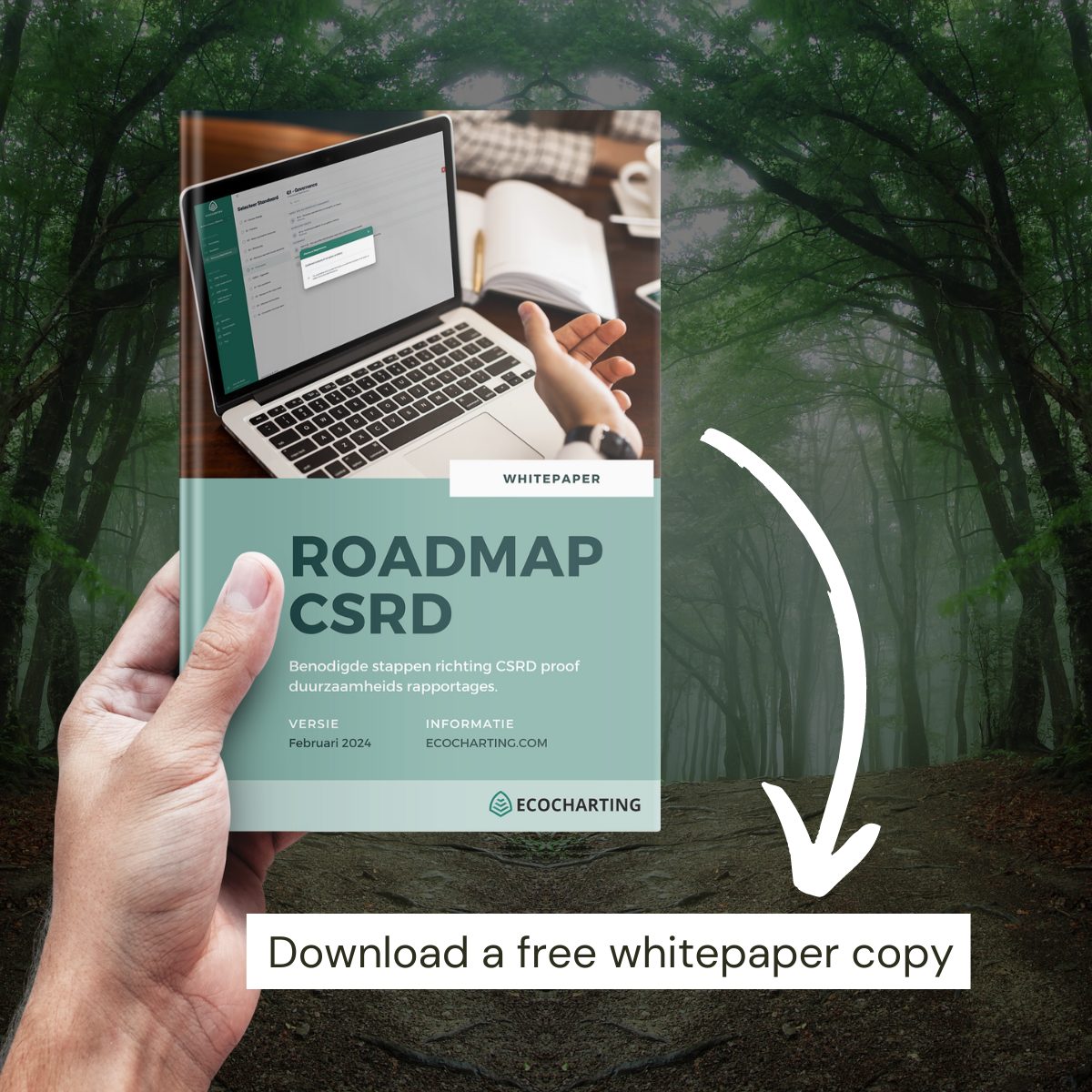

CORPORATE SUSTAINABILITY REPORTING DIRECTIVE
Transparent, comparable, and reliable about sustainability.
Imagine...
The arrival of the CSRD means tremendously much for sustainability.
Imagine what would happen if all companies in Europe were completely transparent about their efforts in the field of sustainability.
Currently, only a fraction of the companies report on this, and almost every report has its own unique method for calculating and disclosing data.
Improved insight thanks to the CSRD
A lack of standardisation in sustainability reporting is not only bad for the world, but also for businesses themselves.
The changes in the world are increasingly having repercussions for organisations, often too little attention is paid to this. If sustainability is already a point of attention, often this consists of a tunnel vision on a limited number of subjects monitored with makeshift solutions.
CORPORATE SUSTAINABILITY REPORTING DIRECTIVE
Get acquainted with the CSRD.
The Corporate Sustainability Reporting Directive is a new reporting legislation introduced by the European Union, aimed at ensuring that large companies report on their sustainability efforts in a transparent, comparable, and responsible manner.
Starting in 2024, accountants will annually verify the accuracy and completeness of these reports, marking a significant step towards sustainable change.


Roadmap CSRD
Our most up-to-date whitepaper. Discover a complete overview of the regulations and the steps to be taken:
- How to engage with whom and when?
- Which datapoints belong in the report?
- How to determine materiality?
- What is the role of digitisation and automation?
Check how the CSRD applies to your business.
Reporting Criteria
Businesses that meet at least two of the following criteria will report under CSRD.
Timeline
2023
Start preparation by performing the double materiality assessment. Develop a materiality matrix.
Start in time
It still seems a long way off: many organizations will have to start reporting on fiscal year 2025. However, a lot is involved in preparing the report properly. The CSRD consists of hundreds of pages of guidelines. Finding out which elements are relevant to your organization and developing the data gathering therefore takes quite some time.
A new reporting standard: why?
The Corporate Sustainability Reporting Directive (CSRD) has a number of important goals.
Most importantly, the aim of the new regulations is to make sure that sustainability reporting will become more transparent, trustworthy and allows for easy comparison between companies alike. To make sure that the information that is disclosed is relevant and valid, accountants will play a key role.
Topics that must be included in the CSRD Report, based on materiality.
Datapoints that are connected to the themes and topics related to CSRD.
More than fifty thousand firms across Europe fall under CSRD regulations.
Not only environmental
As part of the CSRD, European Sustainability Reporting Standards (ESRS) have been developed on the three topics Environment, Social and Governance.
Environment
The environmental theme comprises 5 subtopics. This includes pollution, biodiversity and the circular economy, and more. Some elements are required, while other topics are to be disclosed on based on the outcomes of the double materiality assessment.
Social
In this domain, organizations report on their own workforce, as well as communities in the areas they are active. Also, workers in the value chain and consumers and end-users must be taken into account. Whether all issues are to be reported on, depends on the materiality of topics.
Governance
This theme is about business conduct and whether issues like corruption or bribery are of importance to the organization. Moreover, the theme includes some specific issues like lobbying and late payment with regards to partners, especially for SME suppliers.

CSRD & Ecocharting
Join our next webinar to learn about CSRD and how Ecocharting can help you in your journey towards sustainability.
- Roadmap CSRD & the fit with Ecocharting
- Ecocharting software: setup, costs, timeline
- Double materiality Deep Dive
- F.A.Q. and Q&A
Start CSRD preparations today using Ecocharting.
Get access to our comprehensive CSRD platform by creating your personal demo account today.

